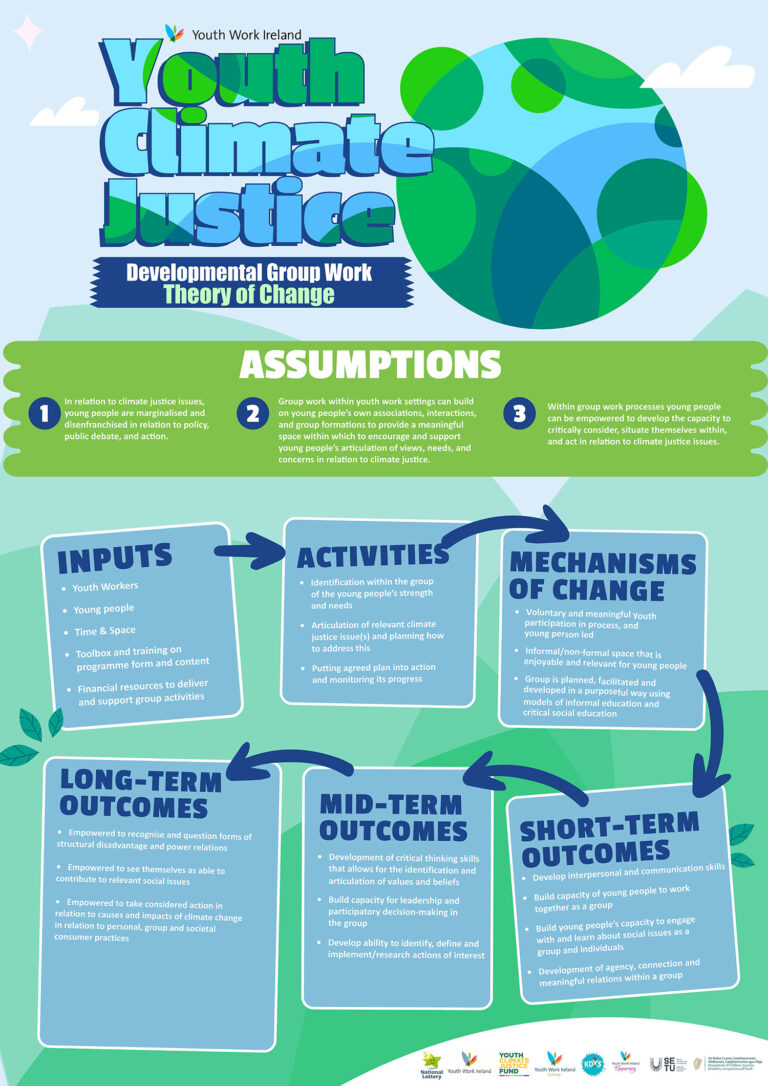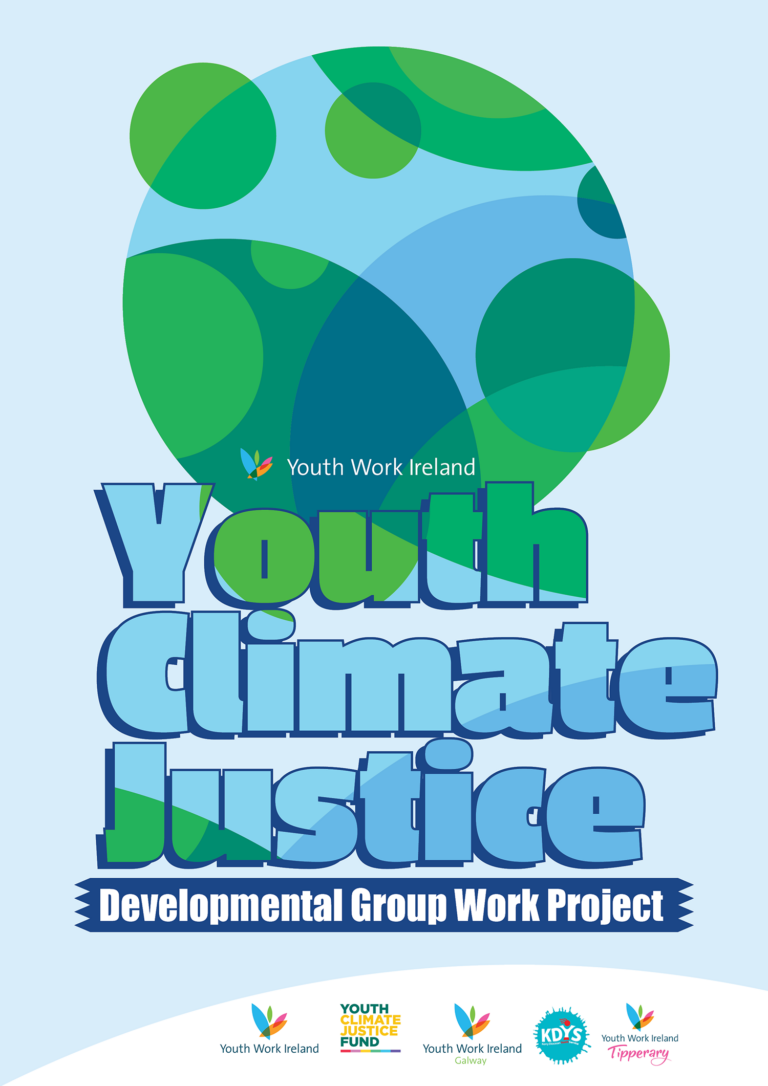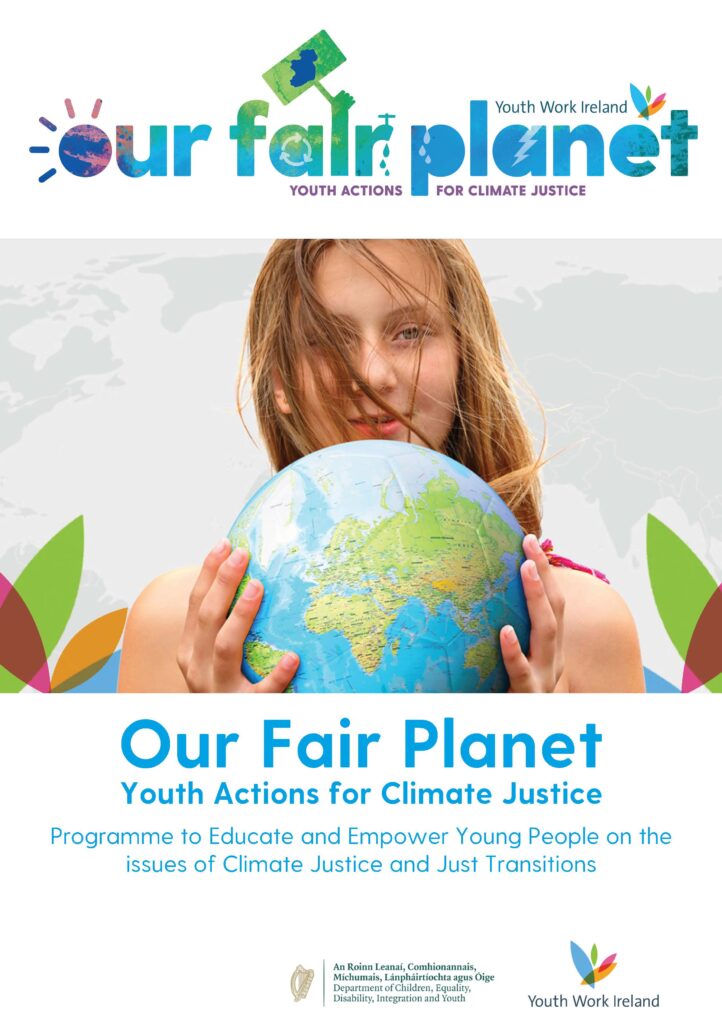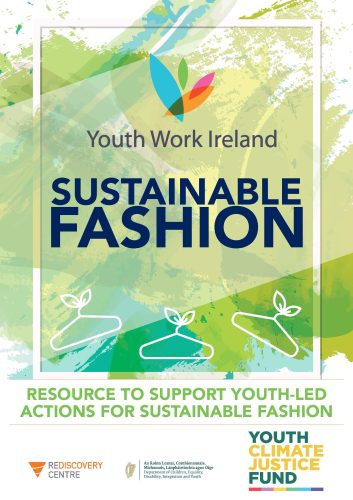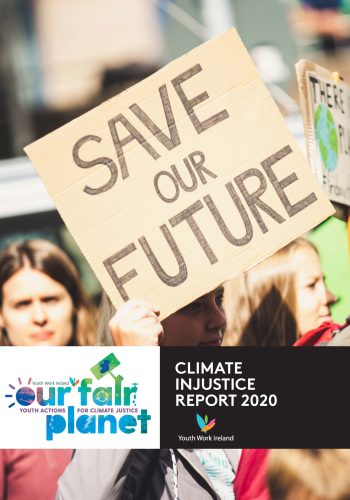Climate Justice
Home » Youth Supports » Climate Justice

The challenge of climate change is a decisive one for the world and it is young people who are leading the for climate action. Young people across the globe have taken part in school strikes and protests to urge governments to take the issue of climate charge seriously and respond quickly.
Youth Work Ireland received funds from the Dept. of Children, Equality, Disability, Integration and Youth‘ s Youth Climate Justice Fund to develop programmes with our Member Youth Services on climate justice and climate action.
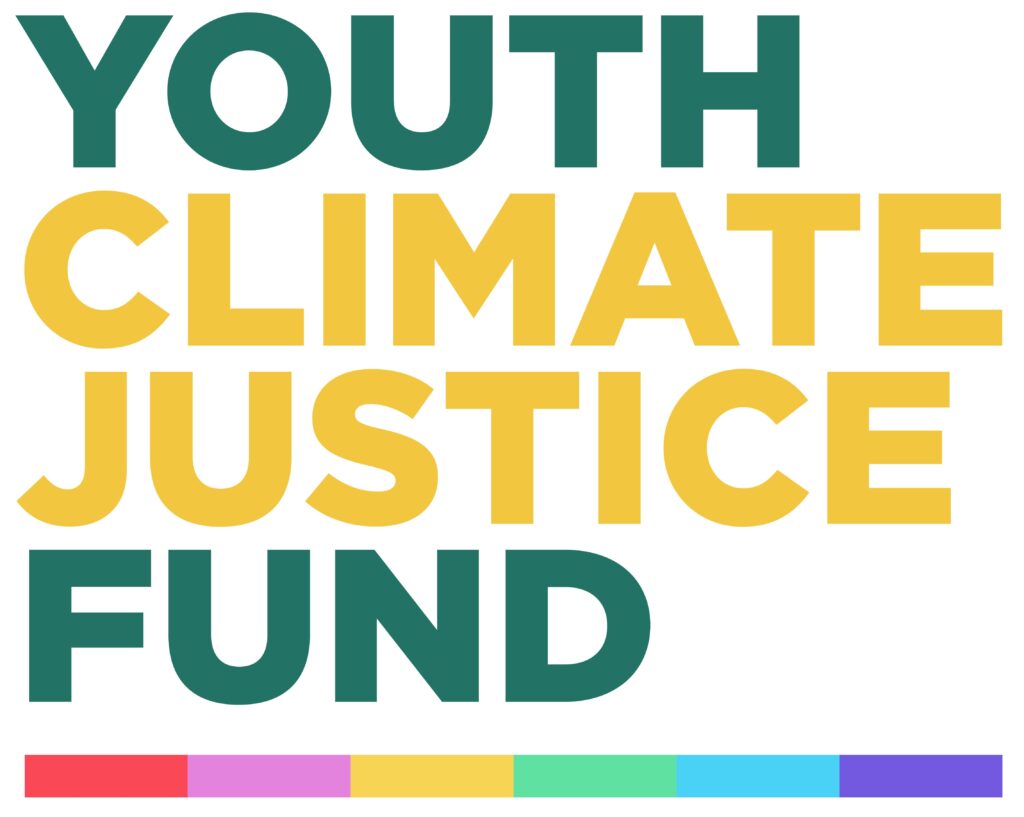
Youth Climate Justice Project 2023
Youth Work Ireland undertook a Youth Climate Justice Project with three Members; Kerry Diocesan Youth Service, (KDYS), Youth Work Ireland Tipperary and Youth Work Ireland Galway in 2023. The overall aim of the project was to develop climate justice programmes, research and resources to activate climate justice activists from seldom heard backgrounds – focusing on settings such as UBU and GYDP. This project which was funded from the DCEDIY’s Youth Climate Justice Fund focused on increasing the engagement of young people in climate justice activities through creating an evidenced, manualised programme of developmental group work that supported young people to take a leadership role in climate justice activism.
Previous Youth Climate Justice Initiatives
Our Fair Planet: Youth Actions for Climate Justice
The Our Fair Planet: Youth Actions for Climate Justice programme supports young people become change makers and advocates for a fairer and more just world. The programme shifts the focus of climate action away from a purely environment issue, to look at the injustices and inequalities that arise from climate change. Through youth empowered actions the programme supports the voices of young people to be heard in developing new ways for local communities to transition to a greener world. It also ensures that young people are at the forefront of innovation and change with regard to climate justice in their local communities.
Our Fair Planet Programme
The Our Fair Planet Programme looks at climate change and the environment from a holistic perspective. The session plans explore with young people concepts such as equality, just transitions, human rights and sustainable development. The detailed Theory of Change Framework will ensure support young people gain the skills, knowledge and learning they need to develop actions and initiatives that promote, climate justice and just transitions in their local communities.
The Our Fair Planet programme was delivered by youth workers in 18 of Youth Work Ireland Member Youth Services in 2020. As part of their participation in this programme each youth group got to decide on one community action that they would devise and carry out in their locality. These community actions were diverse and dynamic and saw young people use their newly found knowledge of climate justice to look to influence others in their community to also reflect on how they live, how they consume and the impact all our actions can and do have at a global level. Each youth groups’ actions are showcased on the Our Fair Planet Website www.ourfairplanet.ie
Youth Panel and Mary Robinson
The Our Fair Planet Programme was delivered across 18 of Youth Work Ireland’s Member Youth Services in Autumn 2020 and as part of their participation in the programme a panel of 7 young people were invited to meet and chat with former President of Ireland Mary Robinson. Mrs Robinson has been at the fore of the climate justice movement and shared with the young people her views on activisim and the role young people can and do play in stepping up to pursuade decision makers that we need a systematic change and immediately implement science based solutions to this urgent issue.
Sustainable Fashion and Climate Justice
In 2021 Youth Work Ireland began the second phase of the Our Fair Planet programme by developing a resource on the topic of sustainable fashion. This theme emerged from evaluations of the Our Fair Planet programme as something young people wanted to learn more about and take action on.
The 90-minute workshop aimed at providing information and resources to enable the delivery of education for sustainable development on the topic of sustainable fashion for young people. We also provided participating groups with sewing machines so young people could learn practical skills to support them in their consumption of fashion. The resource was launched to coincide with the COP26 conference.
Climate Injustice Report
The Climate Injustice Report from Youth Work Ireland uncovers a range of injustices and inequalities in Ireland due to climate change. The report is part of the Our Fair Planet: Youth Actions for Climate Justice programme which aims to educate and empower young people around issues of Climate Justice. The research is driven by young people and it found that 71% of landfill sites and waste incinerators in the country are located in areas that are below the national average of deprivation, as indicated by the Pobal HP Deprivation Index. Also highlighted is the closure of Peat fuelled power plants which has rendered entire communities unemployed, without providing alternative employment opportunities.
The report considers how communities whose livelihoods rely on climate-damaging industries are being left behind in the fight against climate change. It emphasises the need for “Just Transitions;” a concept that looks at how to support these communities as we move into more sustainable ways of living.

